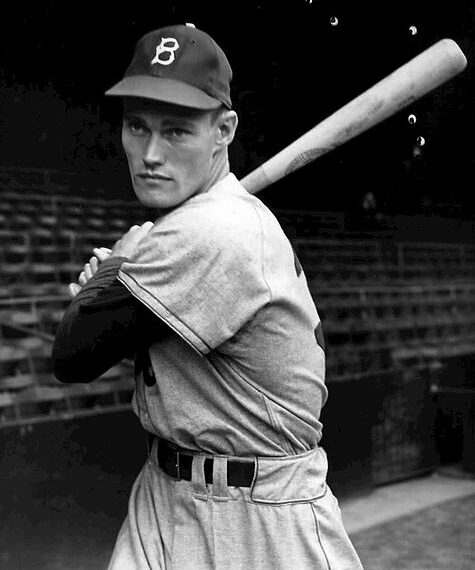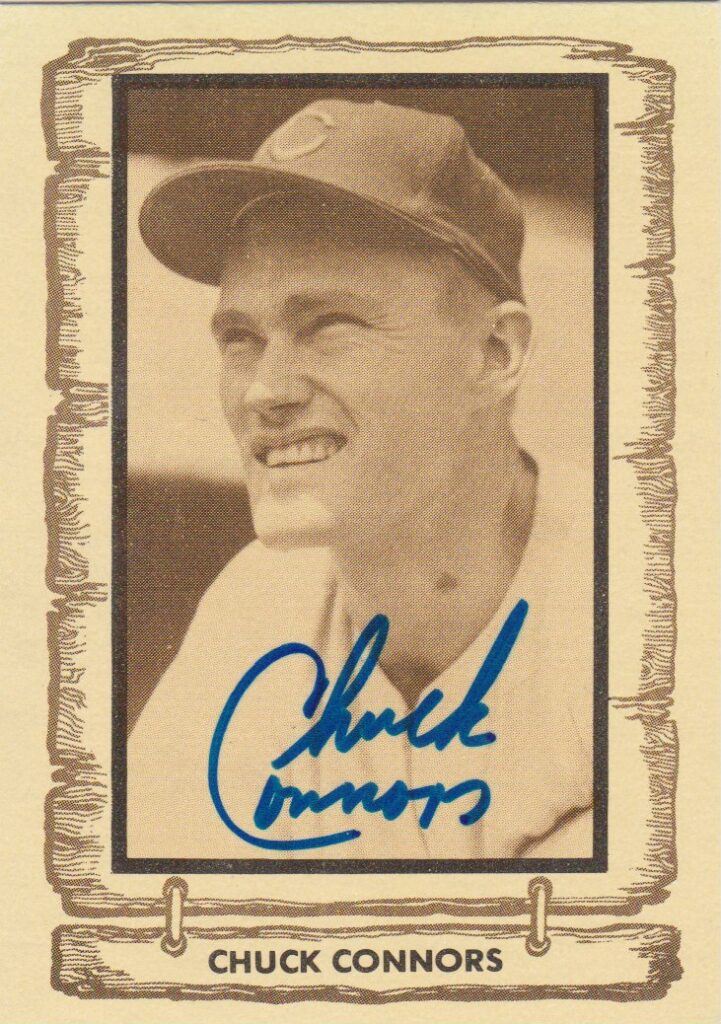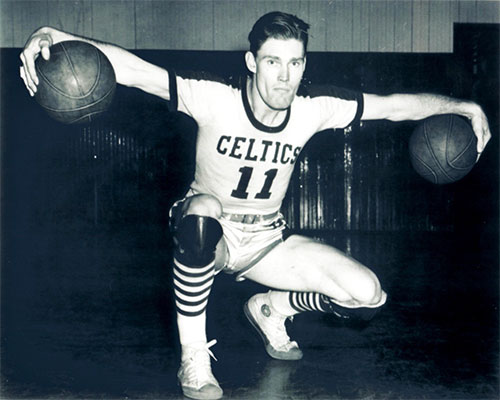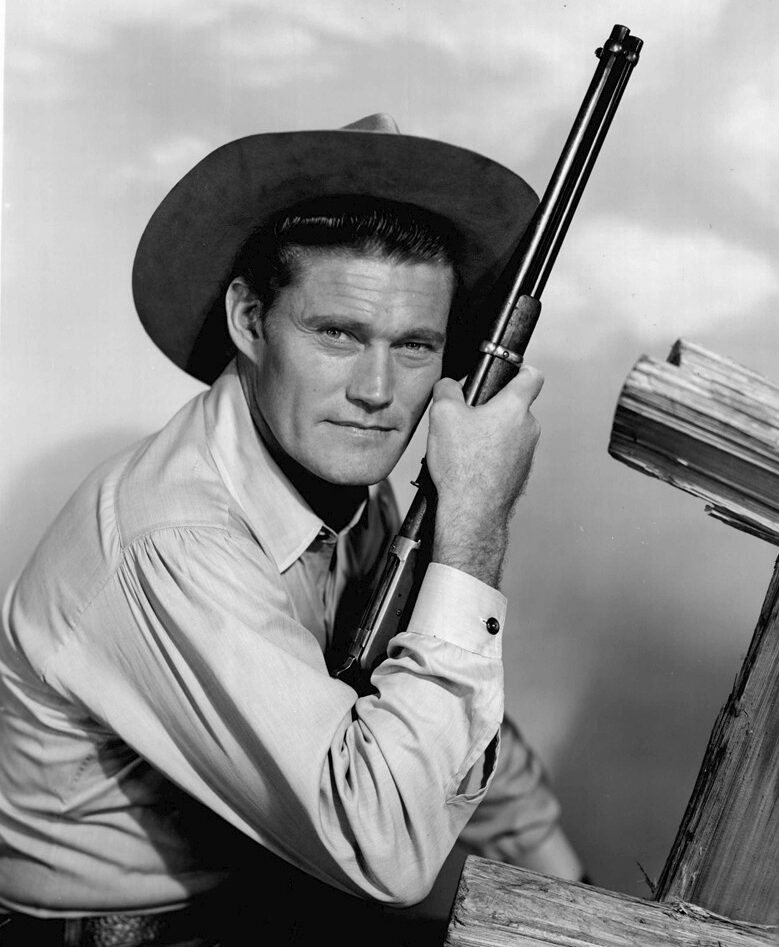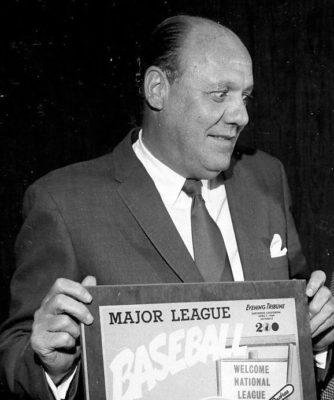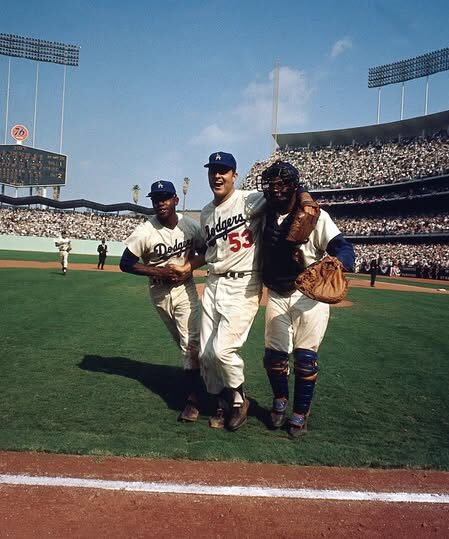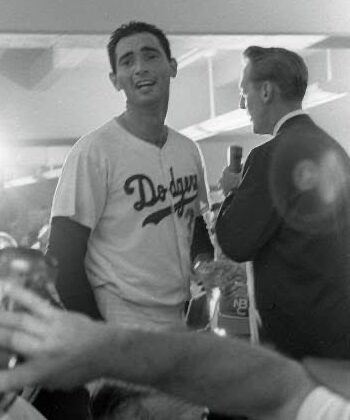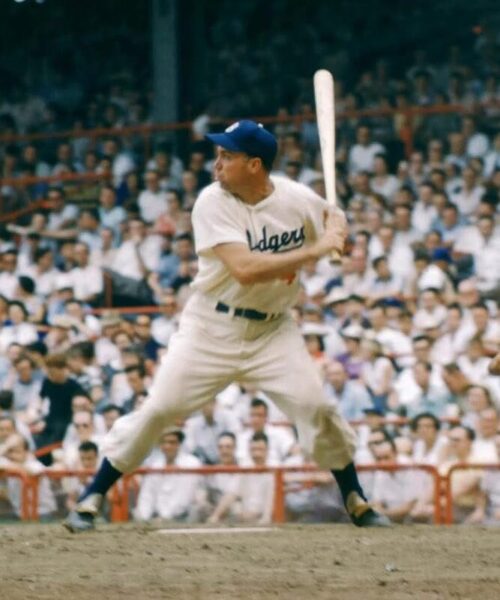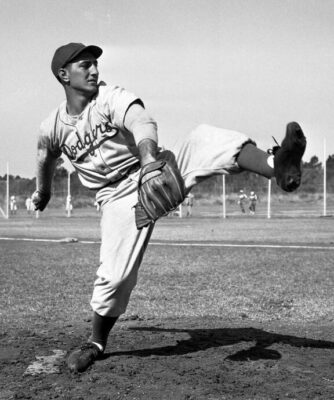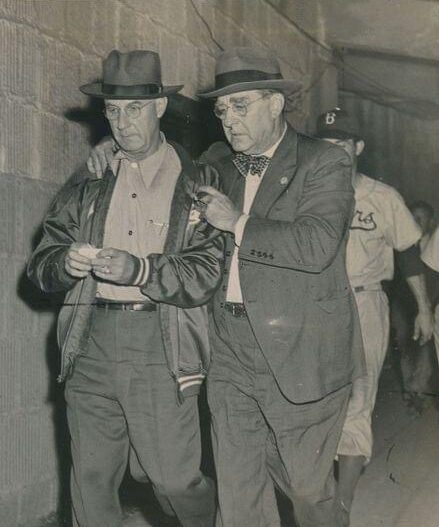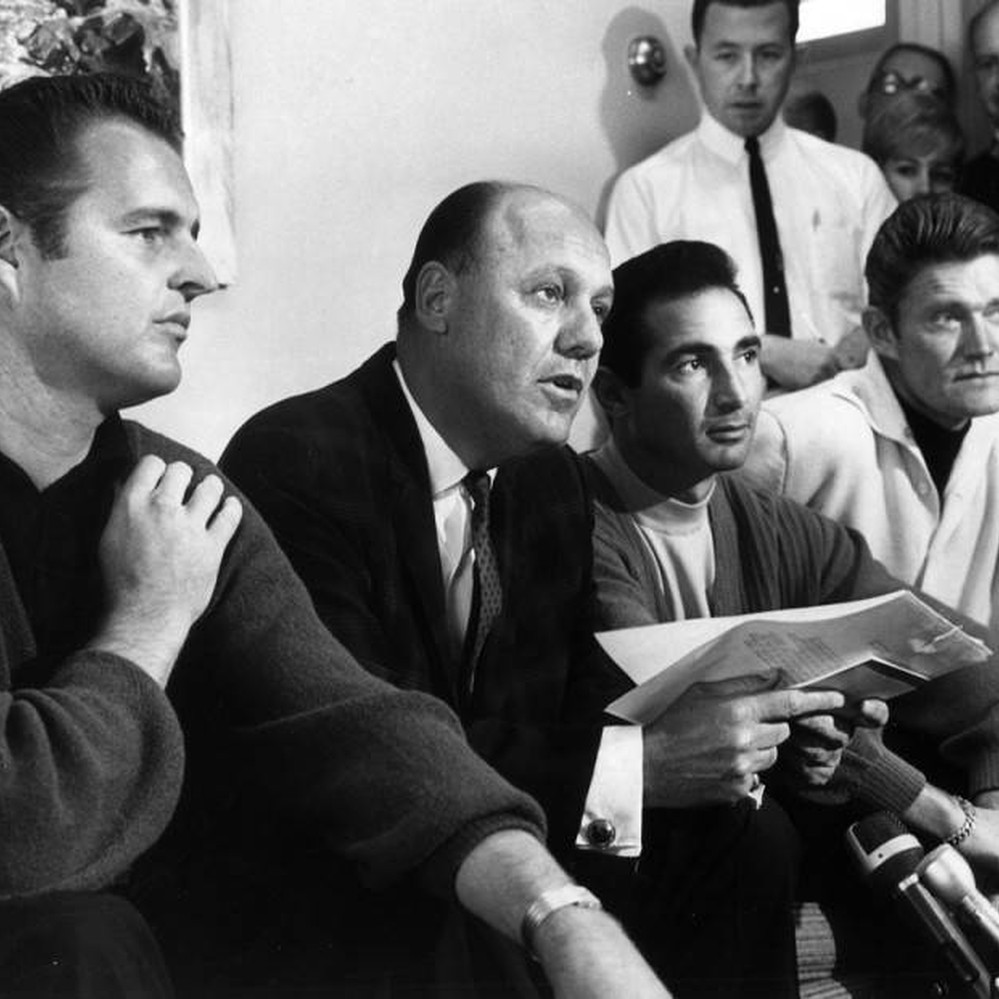
Few baseball fans realize that the Dodgers’ 1966 National League pennant came with a tip of the cap to Chuck Connors. A preseason holdout by star pitchers Sandy Koufax and Don Drysdale threatened to derail the season before it began.
Holding out together, the pitchers each demanded something no player at their position ever had – a six-figure salary. At an impasse with Dodger management, the duo signaled their willingness to sit out the year by signing to appear in a Hollywood movie.
Negotiations between the players and the team broke down. Soon the two sides weren’t even on speaking terms.
That’s when Connors stepped in.
According to BaseballRoundtable.com, the actor, “played a key role setting up the late March meeting between Buzzie Bavasi and Drysdale (at Nicola’s, a popular restaurant near Dodger Stadium) that led finally broke the impasse – with Koufax signing for $125,000 and Drysdale for $100,000.”
Showing no ill effects of the holdout, Drysdale had 11 complete games and 3 shutouts in 40 starts. Koufax led the league in wins (27), ERA (1.73), and strikeouts (317) to earn his third pitching Triple Crown in four seasons.
The pair was joined by rookie Don Sutton, Claude Osteen, and Joe Moeller in a rotation that made all 162 starts in 1966. The Dodgers’ 95 victories were enough to capture the National League pennant. In World Series sweep by the Orioles, MVP Frank Robinson smacked two homers and had three RBI – one more than the entire Dodger offense.
This picture shows, from left to right, Drysdale, Bavasi, Koufax, and Connors announcing an end to the pitchers’ holdout.
